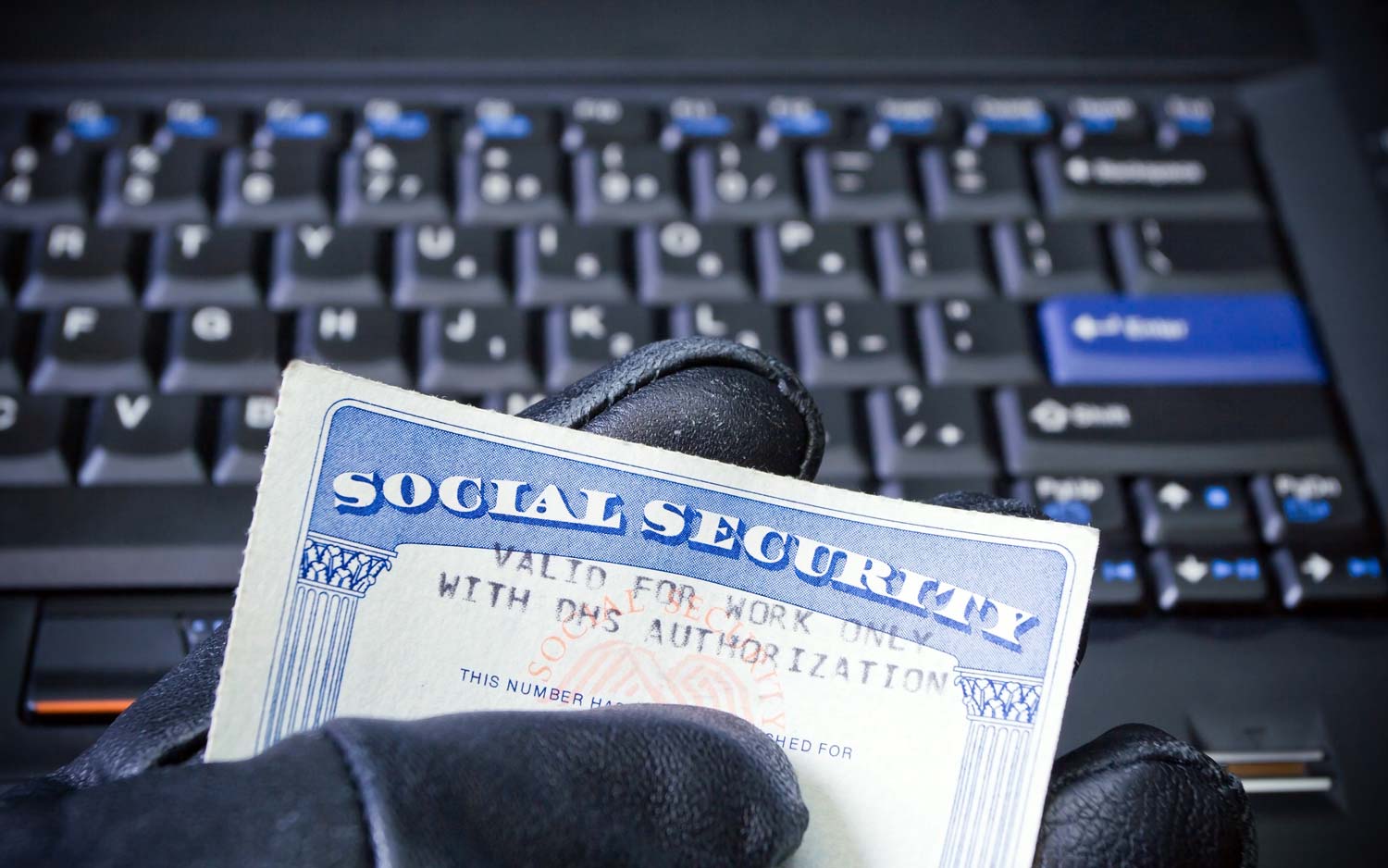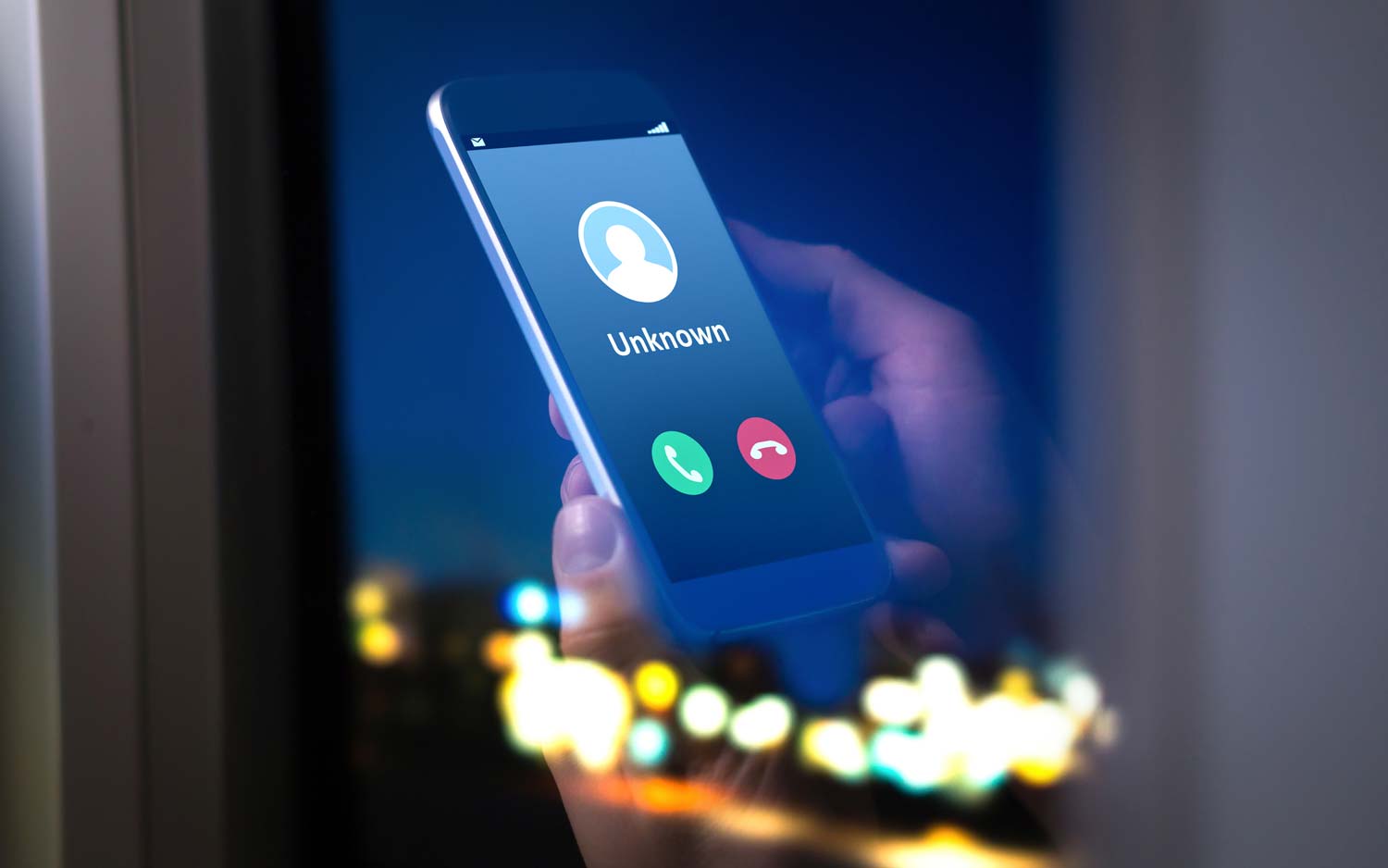How I Got Cussed Out by Social Security Scammers
While Social Security number scams tend to work better on older folks, the scammers will target anyone.
Here at Tom’s Guide our expert editors are committed to bringing you the best news, reviews and guides to help you stay informed and ahead of the curve!
You are now subscribed
Your newsletter sign-up was successful
Want to add more newsletters?

Daily (Mon-Sun)
Tom's Guide Daily
Sign up to get the latest updates on all of your favorite content! From cutting-edge tech news and the hottest streaming buzz to unbeatable deals on the best products and in-depth reviews, we’ve got you covered.

Weekly on Thursday
Tom's AI Guide
Be AI savvy with your weekly newsletter summing up all the biggest AI news you need to know. Plus, analysis from our AI editor and tips on how to use the latest AI tools!

Weekly on Friday
Tom's iGuide
Unlock the vast world of Apple news straight to your inbox. With coverage on everything from exciting product launches to essential software updates, this is your go-to source for the latest updates on all the best Apple content.

Weekly on Monday
Tom's Streaming Guide
Our weekly newsletter is expertly crafted to immerse you in the world of streaming. Stay updated on the latest releases and our top recommendations across your favorite streaming platforms.
Join the club
Get full access to premium articles, exclusive features and a growing list of member rewards.
If you're a relatively savvy person, you're probably aware that Social Security scams are a dime a dozen. The Federal Trade Commission (FTC) has warned you about them; the Social Security Administration has warned you about them; the AARP may even have warned you about them, if you're of the baby boomer persuasion.

But while Social Security scams tend to work better on older folks, the scammers will target anyone. Just the other day, it happened to me: a mid-generation Millennial.
How to prevent Social Security number scams
First off, a few words of advice. If you get an unsolicited call from anyone claiming to be from the Social Security Administration, do not tell them a single blessed thing. The SSA does sometimes contact individuals, but like most government agencies, it does so by mail at first and phone calls thereafter.
If you are uncertain about the provenance of a call like this, you can always express your concern and offer to call them back at the SSA's official number, 1-800-772-1213. No real SSA employee will object to this, although you will have to wait on hold for a bit until you get to a real person.
Furthermore, the most common claim from scammers is that your Social Security number has been "suspended." This cannot happen. If you don't believe me, then listen to the FTC.
MORE: 7 Easy Ways to Get Your Identity Stolen
In extremely rare cases, the SSA may issue a new Social Security number to a citizen who has been a constant victim of identity fraud, but the agency will do this only after a long process. Generally speaking, though, you're stuck with the SSN you were born with. That's one of the reasons why it's so hard to prevent repeat attempts at identity theft.
Get instant access to breaking news, the hottest reviews, great deals and helpful tips.
Finally, it's important to remember that the scammers want more than just your SSN. That's the gold standard, but they'll take whatever they can get. They want to confirm your full name, your phone number, your birth date, your home address, your occupation and whatever else you're willing to volunteer.
It does not take much to impersonate a person, particularly if you're not overly concerned with obtaining financial information. ("Social engineering" is very much a thing, and money is not always the primary concern. Spreading malware to your social media contacts is also a tempting idea for cybercriminals.)
With that in mind, here's what happened to me.
A run-in with scammers
I returned to my desk after making short work of a sandwich, only to discover that I'd missed a call on my cellphone during my elegant repast. The number was 562-246-6812. Pay attention to that, because it's going to be important later.

Thankfully, these good robotic Samaritans left a message. Namely, they said that my Social Security number had been "suspended" and that I had to call them back right away at that number.
Now, remember that phone number? It's interesting for two reasons. The first is that it is, most decidedly, not the real SSA number. The number is for a landline in Los Angeles, whereas the actual SSA is located in Woodlawn, Maryland — and it's also simply the incorrect number for the SSA, as you can see by comparing to the proper number, listed above.
But just out of curiosity, I called the number — and, to my surprise, I got a robotic answering machine that claimed to be the real SSA.
Not only is impersonating a government agency extremely illegal, but it's also phenomenally stupid to tie an illicit operation to a working phone number — even though the scammers are not based in the United States and, therefore, not subject to U.S. jurisdiction. But even if it's just a throwaway line, phone numbers are so easy to spoof; why risk anything that could be used to track you?
Anyway, I figured at this point that the scammers already had my number, so what could the harm be in playing dumb for a little longer? I left a message, and they called me back within 5 minutes.
The man on the other end of the line called himself Jason (although it's unlikely that a scammer would use his real name). He had a thick Indian accent and an extremely weak phone connection, with a cacophony of other voices audible in the background.
To be clear, there are absolutely legitimate U.S. government employees with Indian accents. But in my experience, they work in quiet offices with crystal-clear landlines.
Here is where I made my first, and only, mistake in dealing with the scammer. I'm not proud of this. He asked, "Is this Marshall Honorof?" Before thinking, I replied, "Yes."
Remember: Don't give scammers any information, even your name. This organization now knows that whatever information they have linking my name to my phone number is accurate. And if they're so inclined, they can use that to find additional information about me online.
But since my name and cellphone number are publicly available, this is not the worst mistake I could have made. It certainly wasn't as bad as what they asked me next.
Jason asked me to provide the last four digits of my Social Security number. I rattled off four random digits, figuring this would end the jig straight away if they actually had my number. Thankfully, "Jason" confirmed that my digits "matched" his and that I'd need to confirm my birthdate next.
MORE: What to Do If Your Social Security Number Is Stolen
Here's where I started losing patience; just how gullible did this scammer think I was? I asked him why he was calling from California, when the SSA was located in Maryland. He simply repeated that he was calling from California (he was most likely calling from India), without answering my question.
I then asked what he meant by saying that my number had been "suspended." I told him that this could not actually happen, and I used the FTC article to back up my assertion.
"Jason" did not listen. Instead, he asked for my birthdate more and more insistently, getting louder and louder each time, even cutting me off when I started to ask a new question. Needless to say, this is (probably) not how a federal employee would act.
Finally, I'd had enough of the scammer's bad attitude. I said, "Before we go any further, I'm sure you wouldn't mind if I verified this phone number with the police?"
"Jason" yelled, "F**k you!" and slammed down the receiver. Needless to say, I did not find his impersonation of an SSA employee entirely convincing.
Victims of the scams
I could have let this issue go and simply chalked it up to Russian cybercriminals conscripting poor Indians to scam credulous Americans. But hurling profanity at me was a nadir I did not expect, even from a scammer. So, I'm writing up this story partially to vent my frustration, and partially to warn you.
It's easy to laugh off SSN scammers as scummy criminals who wouldn't last a day doing real work, but not every intended victim is a tech-savvy skeptic. Rather, the scams tend to work on grandparents who tend to be more susceptible to scare tactics and less critical of the holes in scammers' stories.
So, gentle reader, I encourage you to do what I did. Call the not-so-friendly scammers at 562-246-6812 and leave a message informing them just how boneheaded their operation is. (You may want to dial *67 on your cellphone first in order to hide your number.) With enough angry voicemails, they may get the message.
Credit: Shutterstock

Marshall Honorof was a senior editor for Tom's Guide, overseeing the site's coverage of gaming hardware and software. He comes from a science writing background, having studied paleomammalogy, biological anthropology, and the history of science and technology. After hours, you can find him practicing taekwondo or doing deep dives on classic sci-fi.
 Club Benefits
Club Benefits










